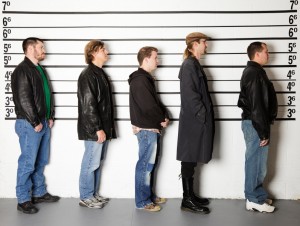
Hate Crimes
Hate crimes may range in severity from assault to property damage. They may be based on the victim’s race or religious affiliation as well as a variety of other statuses. No individual is exempt from being considered the victim of a hate crime in the eyes of the law as long as the victim exhibits any traits for which they may be discriminated against.
Types of Hate Crimes
The destruction of property that is based on the defendant’s prejudice and bias towards the victim is one of the most common types of hate crimes. Assault and threats that are expressed based on prejudice and bias are also considered hate crimes. A victims right attorney may be able to help you determine whether your experience qualifies as a hate crime.
Hate Crime Offense Profile
The legal jurisdictions of a hate crime include criminal, defamation, employment, administrative, and civil law. Typically, hate crimes are classified as felonies as they tend to involve threats of harm, destruction of property, or physical assault. The criminal code for hate crime varies depending on the applicable law in the area where the crime was committed. Punishments for a hate crime may include fines, incarceration, probation, and other associated penalties. The duration of the punishment varies from one location to another. Individual intent, criminal record, and other individual factors may determine the applicable punishments in any hate crime case. Prejudice, bias, aggravated felony, defamation, ethnicity, racism, religion, sexual orientation, unalienable rights, and the First Amendment are all concepts that are commonly associated with hate crime charges. Prejudice and bias are any unfounded opinions that are based not on reasoning but on preconceived notions about the victim. Hate crimes may take the form of aggravated physical assault or slandering the victim. Ethnicity and race are common motivations for hate crimes, as are religion and the victim’s sexual orientation. Hate crimes violate the unalienable rights of every citizen to have “Life, Liberty and the Pursuit of Happiness.” Hate crimes also often involve a violation of the individual’s right to Freedom of Speech.
Arrest Procedure
Victims rights attorney may be able to help you further understand the arrest process for a hate crime charge. The person accused of the hate crime must be served an arrest warrant displaying the hate crime charge or have already been arrested. Individuals charged with a hate crime are advised to comply with law enforcement agents even if they do not believe the charge is just. Legal counsel is provided after the arrest process, and any attempts to flee from arrest can lead to further penalties. The defendant is made aware of his rights to habeas corpus, due process, and the presumption of innocence upon arrest. During the arrest, the defendant must be read his Miranda Rights, including the Fifth Amendment. The Fifth Amendment states that the individual being arrested has the right to remain silent to avoid incrimination. The Miranda Rights also explain that any words spoken during arrest may be used during a trial and that the individual has the right to consult with an attorney regardless of his financial status.
Hate Crime Defense
In most cases, the hate crime defense hinges on proving that the crime did not meet the standards of the hate crime regulations. From threats to biographical information on the victim, the defense may argue that the crime perpetrated against you was not actually a hate crime related to your status as part of a group that is frequently discriminated against.
Contact Victims Right Attorneys
If you believe that you were the victim of a hate crime, contact the Law Office of Michael Fell today at (877) 262-2430 for more information on how you can get the justice you deserve. A hate crime may be committed against anyone who belongs to a group or exhibits a trait that could lead to discrimination. Hate crimes are based not on reason but on preconceived notions that the perpetrator has about the defendant. Working with victims right attorneys may help you build a strong case to prove that the crime committed against you was motivated by your status as a member of a protected religion, race, ethnicity, or other group.

